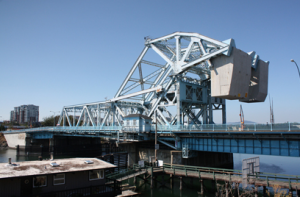An article in Governing.com informs about how linear logic drastically failed the Boston suburb of Somerville when a highway and an overpass were built right through it. The unintended consequences of the road building that seemed rational were huge for the community of the suburb.
Mayor Curtatone had the good sense to team up with a Systems Thinking approach, realizing that public policy often fails to “think in terms of interrelated systems”.
But what is systems thinking and why do we need it so badly?
Systems Thinking is the offspring of a precise paradigm, one that “emerges” from the unprecedented level of interconnectedness we all live in. At its most profound level, Systems Thinking is what we need to understand higher realms of validity for human life to continue to exist. For instance, it helps us understand the lethal dangers of excessive inequality, the limits of sustainability, and a balanced approach to the exploitation of natural resources.
Systems Thinking is about seeing how interdependencies (the way we are connected) create realities that are fundamentally different from the ones represented by the connecting elements: the whole is VERY different from the sum (or any linear combination) of its parts.
A new ecology of the mind
At its most ambitious level, Systems Thinking should be aimed at creating a new ecology of the mind and tapping into higher realms of self-consciousness. It helps us access a superior, and largely un-exploited ability to develop new cognitive possibilities and act upon them. It helps us see how much faster we can close the gap between what we know and how to put it into practice. as we embrace the dynamic (and non-linear) unfolding of reality.
At Intelligent Management, we work with Systemic Thinking through powerful systemic tools and statistical methods, combining the work of W. Edwards Deming with the Theory of Constraints. We believe this approach is the foundation for a more meaningful way of living our lives. We desperately need more leaders who are educated to take decisions based on understanding the interdependencies and implications involved. It would save millions if not billions of tax payers’ money. But how many leadership programs, either in business schools or elsewhere are actually offering this?
A Bridge too far
This post was written in Victoria, BC, where, as CBC reports, “the project to replace the nearly century-old iconic blue bridge in the city’s Inner Harbour has been racked by years of delays and ballooning costs.
Billed as the largest capital project in the city’s history, costs for the project were initially estimated at $63 million with the bridge completed by 2015. Now, costs have grown to $105 million and the bridge is expected to be completed by mid-2018.
The Canadian Taxpayers Association even awarded the project the dubious honour of the 2017 Municipal Teddy Government Waste Award for wasting millions in public money.”
Sign up to our blog here and shift your thinking towards broader, systemic possibilities for yourself and your organization. Intelligent Management provides education and training on systemic management, W. Edwards Deming’s management philosophy and the Theory of Constraints (Decalogue methodology) in North America and Europe.
About the Author
Angela Montgomery Ph.D. is Partner and Co-founder of Intelligent Management and author of the business novel+ website The Human Constraint , so far purchased in 21 countries around the globe. This downloadable novel uses narrative to look at how the Deming approach and the Theory of Constraints can create the organization of the future, based on collaboration, network and social innovation. She is co-author with Dr. Domenico Lepore, founder, and Dr. Giovanni Siepe of ‘Quality, Involvement, Flow: The Systemic Organization’ from CRC Press, New York.






Leave a Reply